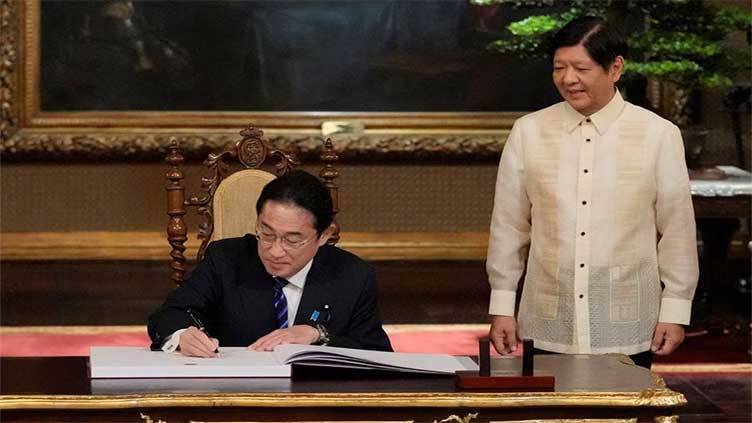Japan, Philippines agree to hold talks on reciprocal troops pact

World
Japan, Philippines agree to hold talks on reciprocal troops pact
MANILA (Reuters) - The leaders of Japan and the Philippines on Friday agreed to start negotiations on a reciprocal troop access deal, strengthening military cooperation amid rising maritime tensions in the region and an increasingly assertive China.
Japanese Prime Minister Fumio Kishida said he and President Ferdinand Marcos Jr had agreed to work together closely with the United States, and, in a veiled reference to China, shared concern about "unacceptable" attempts to "unilaterally change the status quo by force" in the East and South China Seas.
"A further decision was made to start negotiations on a reciprocal access agreement and we agreed to further strengthen trilateral cooperation," Kishida, who was on an official visit to the Philippines, told a joint press conference.
Both the Philippines and Japan, two of the United States' closest Asian allies, have taken a strong line against what they see as aggressive behaviour by Chinese vessels amid decades-old disputes over maritime sovereignty.
Japan does not have any claim to the South China Sea, but has a separate maritime dispute with China in the East China Sea.
The troop pact would follow a similar deal the Philippines has with the United States, called the Visiting Forces Agreement, which provides a legal framework under which the U.S. maintains a constant but rotating military presence in the Philippines, largely for training exercises.
"We are cognisant of the benefits of having this arrangement both to our defence and military personnel and to maintaining peace and stability in our region," Marcos said of a pact with Japan.
Tokyo has Reciprocal Access Agreements with Britain and Australia, and also hosts the biggest concentration of U.S. forces abroad.
Marcos also said Japan gave a 600 million yen ($4 million) grant to the Philippines under its Overseas Security Assistance (OSA) programme to help boost his country's efforts in securing coastal radars.
Japan's decision to expand the scope of international aid to military-related projects follows Tokyo's announcement in December last year of a doubling of defence spending in five years as it confronts regional security challenges from China and an unpredictable North Korea.
Ahead of the visit, the Japan defence ministry announced the delivery of the first air surveillance radar system to the Philippine military as part of a 2020 contract.


